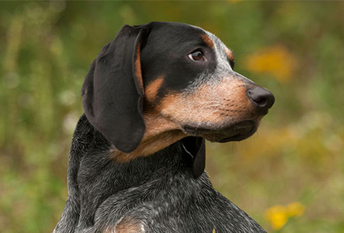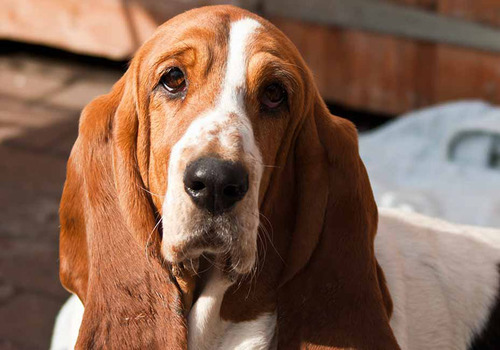Basset Hounds were originally bred in France and Belgium (“basset” is French for “low”). It is thought that the friars of the Abbey of St. Hubert were responsible for crossing strains of older French breeds to create a low-built scenting hound that could plod over rough terrain while followed on foot by a human hunting partner tracking rabbit and deer. Their accuracy and persistence on scent made Bassets a popular choice for French aristocrats, for whom hunting was a way of life.
Bassets first came to the United States in the early 19th century, and the American Kennel Club began registering them in 1885. Bassets became well known in the 1960s after starring in an ad campaign for Hush Puppy shoes, and their popularity increased dramatically. The breed currently ranks 36th in AKC registrations.










